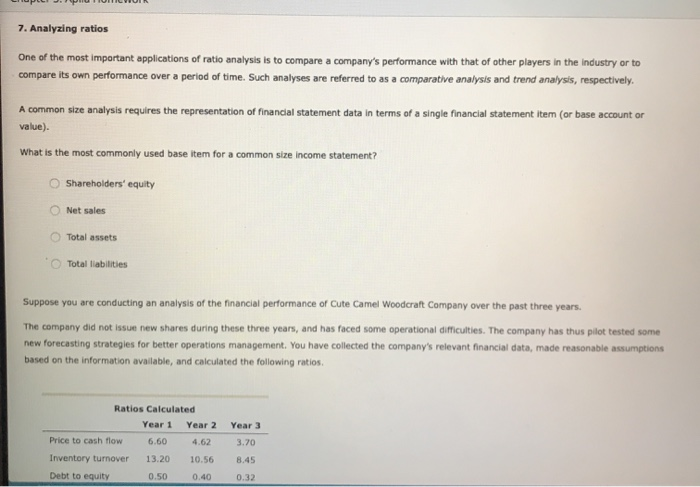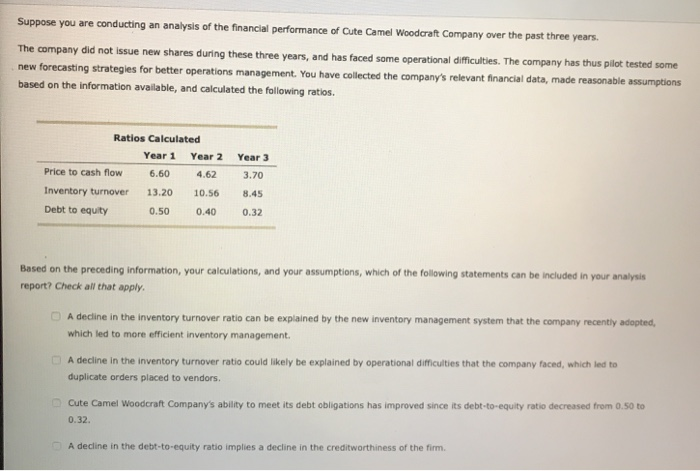7. Analyzing ratios One of the most important applications of ratio analysis is to compare a company's performance with that of other players in the industry or to compare its own performance over a period of time. Such analyses are referred to as a comparative analysis and trend analysis, respectively. A common size analysis requires the representation of financial statement data in terms of a single financial statement item (or base account or value). What is the most commonly used base item for a common size income statement? Shareholders' equity Net sales Total assets Total liabilities Suppose you are conducting an analysis of the financial performance of Cute Camel Woodcraft Company over the past three years The company did not issue new shares during these three years, and has faced some operational difficulties. The company has thus pilot tested some new forecasting strategies for better operations management. You have collected the company's relevant financial data, made reasonable assumptions based on the information available, and calculated the following ratios. Ratios Calculated Year 1 Year 2 Price to cash flow 6.60 4.62 Inventory turnover 13.20 10.56 Debt to equity 0.50 0.40 Year 3 3.70 8.45 0.32 Suppose you are conducting an analysis of the financial performance of Cute Camel Woodcraft Company over the past three years. The company did not issue new shares during these three years, and has faced some operational difficulties. The company has thus pilot tested some new forecasting strategies for better operations management. You have collected the company's relevant financial data, made reasonable assumptions based on the information available, and calculated the following ratios. Ratios Calculated Year 1 Year 2 Price to cash flow 6.60 4.62 Inventory turnover 13.20 10.56 Debt to equity 0.50 0.40 Year 3 3.70 8.45 0.32 Based on the preceding information, your calculations, and your assumptions, which of the following statements can be included in your analysis report? Check all that apply. A decline in the inventory turnover ratio can be explained by the new inventory management system that the company recently adopted, which led to more efficient inventory management A decline in the inventory turnover ratio could likely be explained by operational difficulties that the company faced, which led to duplicate orders placed to vendors. Cute Camel Woodcraft Company's ability to meet its debt obligations has improved since its debt-to-equity ratio decreased from 0.50 to 0.32 A decline in the debt-to-equity ratio implies a decline in the creditworthiness of the firm








